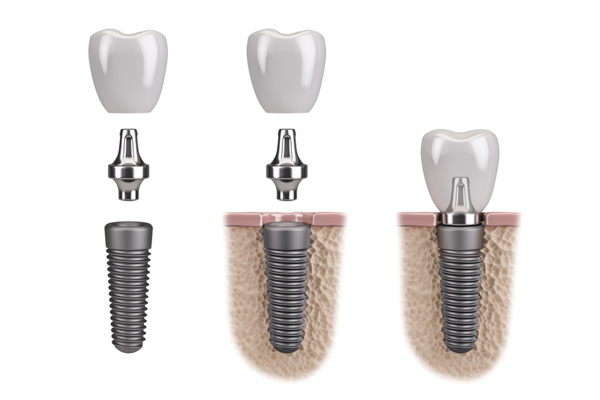 A general dentistry practitioner handles all types of cavities, even those that form between the teeth, medically known as interproximal cavities. These are caused by the erosion of the enamel, the tooth's protective outer covering. Although it is the strongest portion of the body, the enamel is continually assaulted by acids produced by oral bacteria and acids found in the foods consumed.
A general dentistry practitioner handles all types of cavities, even those that form between the teeth, medically known as interproximal cavities. These are caused by the erosion of the enamel, the tooth's protective outer covering. Although it is the strongest portion of the body, the enamel is continually assaulted by acids produced by oral bacteria and acids found in the foods consumed.
Interproximal cavities and how a general dentist identifies them
Oral bacteria become entrenched in plaque or tartar on a person's teeth. When food particles and germs are not cleaned off regularly, these deposits accumulate on a person's teeth. Plaque or tartar bacteria convert any carbs and sugars they find in the mouth into acids, which cause holes in tooth surfaces.
Since they occur in the narrow gaps between a person's teeth, interproximal cavities are more difficult to notice visually. To make a proper evaluation, a bite-wing x-ray is usually necessary. It allows the dentist to discover cavities in the early stages. Some indicators of an interproximal cavity include sensitivity when consuming hot, cold, or sugary meals and beverages, as well as a toothache that worsens when chewing.
Fluoride treatment can be utilized to remineralize the damaged tooth if the patient's interproximal cavity has not progressed more than halfway into the enamel. Fillings are the usual general dentistry procedure if the cavity has progressed past the enamel. Composite resin fillings are chosen for this procedure since it is possible to customize their color to match the patient's teeth.
If not addressed, an interproximal cavity will make its way into the pulp chamber, much like a common cavity. In this case, the tooth will need to undergo a root canal. Otherwise, the tooth will ultimately get infected. If the infection spreads to the tooth's roots, it may be necessary to remove the tooth to prevent the infection from spreading to vital organs, where it can be fatal.
Stopping cavities between teeth
Flossing and brushing twice a day are two excellent ways to prevent cavities from forming in the gaps between teeth. Flossing eliminates plaque from hard-to-reach places that are inaccessible to the toothbrush's bristles. A fluoride-based mouthwash adds another layer of defense against tooth decay. Fluoride treatments can help remineralize teeth with deteriorating enamel.
When it comes to preventing cavities of any kind, good dental hygiene is important. When it comes to interproximal decay, flossing is especially crucial because brushing is hardly efficient in cleaning the gaps between teeth. By flossing every day, patients can keep the spaces between their teeth clean, along with every part of the oral cavity. Patients also need to stay committed to biannual dental appointments at the general dentistry office so the dentist can examine the teeth and catch cavities before they worsen.
The general dentist can provide adequate treatment
Fluoride, fillings, or a root canal can all be used to treat cavities. If you have noticed signs of cavities, visit the general dentistry office to speak with a dentist about your choices.
A general dentist may treat any cavity, including those that develop between the teeth, referred to as interproximal cavities in medical terms. Erosion of the enamel, the tooth's protective outer layer, causes it. The enamel is constantly attacked by acids generated by oral bacteria and acids present in the foods eaten, despite being the strongest part of the body.
Request an appointment or call Lilburn Family Dentistry at 770-800-0178 for an appointment in our Lilburn office.
Recent Posts
People visit the general dentistry office because they desire healthy oral cavities, free of cavities. However, a checkup can show more than cavities. Dentists do not only perform dental cleanings and restorations. They also examine the mouth for present or potential health issues so patients can take appropriate precautions to avoid them or get them…
General dentistry focuses on preventative dentistry, but it also includes restorative treatments that address problems like a loose tooth. A tooth becoming loose may eventually lead to it falling out of its socket, so such issues should never be ignored.General dentistry has multiple ways to address issues like a loose tooth. It often comes down…
Many are familiar with how sugar can affect overall health, but fewer are familiar with why general dentistry practices recommend avoiding sugar. Sugar can have a negative impact on oral health and the appearance of your smile. This article discusses exactly why sugar is potentially harmful to the teeth and gums.The following is everything to…


